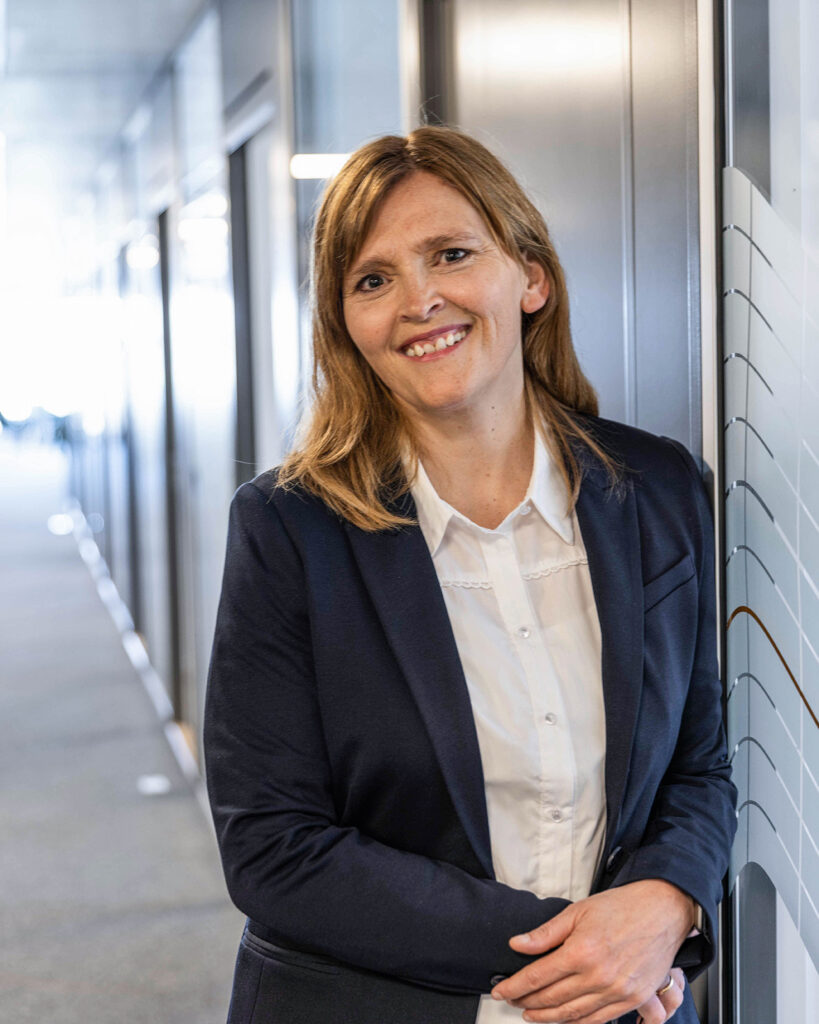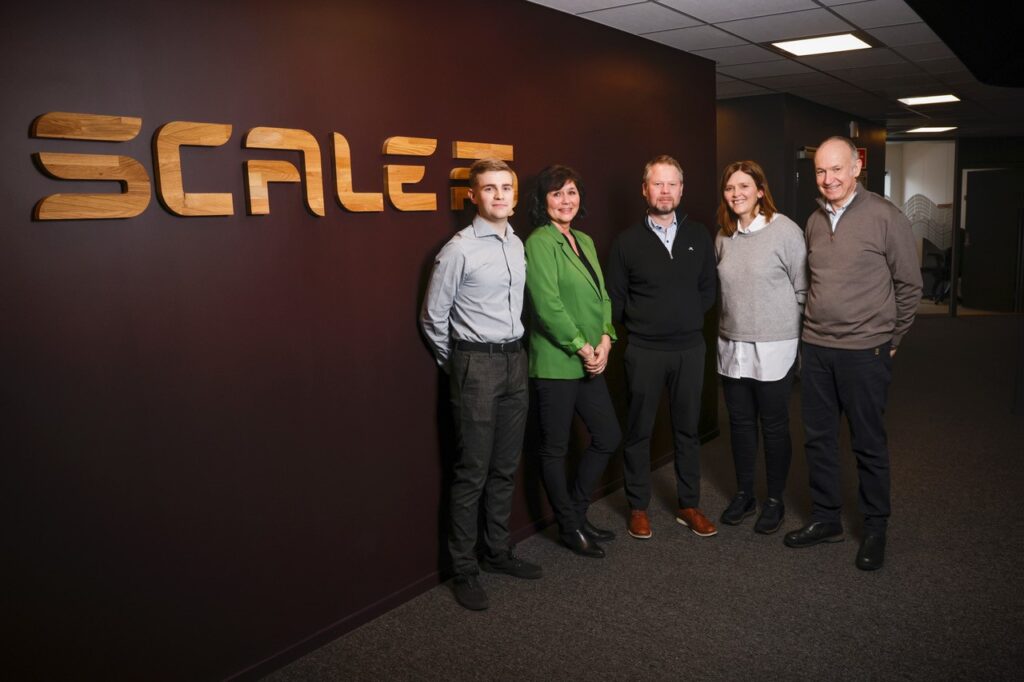In collaboration with the global transport and logistics company Kuehne+Nagel, we are now taking a big step towards our goal of a carbon-free supply chain. With this initiative, we are the first in Norway to make a large-scale and traceable investment in a biofuel-supported supply chain for sea freight.
The measures we are taking in collaboration with Kuehne+Nagel remove or offset CO2 emissions from our entire sea-based supply chain. In 2023 and together with Kuehne+Nagel, we will:
- reduce our CO2 emissions by 960 tonnes WTW.
- Be the first in Norway with a biofuel-supported supply chain for the sea transportation of equipment to the aquaculture industry.
- transport 1000 containers using the next generation of biofuels.
“We are working with Kuehne+Nagel to create a carbon-free supply chain for us and our customers”, says Hanne Digre, Chief Sustainability Officer at ScaleAQ.
“As a logistics partner for ScaleAQ, Kuehne+Nagel is honoured to contribute to our shared ambition of a sustainable future, which is a key priority in our 2026 Roadmap”, says Arne Faaberg, Managing Director at Kuehne+Nagel Norway.
Immediate reduction of greenhouse gas emissions
The scheme enables emission-free transport for suppliers who otherwise do not have the opportunity to reduce their emissions because fossil-free ships, for example, do not run along their trade routes.
ScaleAQ’s emissions will be reduced with immediate effect by:
- Calculating the CO2 emissions from our shipments in detail.
- Kuehne+Nagel purchasing biofuels that are equivalent to what is needed in order to offset our emissions.
- Using the biofuel on container ships – without this meaning that our cargo is necessarily on board.
- The biofuel consumption being attributed to our cargo, and we receive documentation that confirms the reduction in greenhouse gas emissions.
The scheme is of course fully traceable, which benefits ScaleAQ’s customers.

Hanne Digre, Chief Sustainability Officer

Picture: From left, Truls Øksnevad, Logistics Engineer ScaleAQ, Lisbeth Krogen Jensen, Sales Executive Kuehne+Nagel, Ståle Sæther, Chief Operations Officer ScaleAQ, Hanne Digre, Chief Sustainability Officer ScaleAQ and Arne Faaberg, Managing Director of Kuehne+Nagel Norway
Immediate deductions on the bottom line of the climate accounts
Many companies in the aquaculture industry have set specific targets to cut their own greenhouse gas emissions. For them, the emission-offset transport scheme will be a welcome addition to the climate accounts.
Specifically, the reduction will be evident in the environmental documentation for the products purchased from ScaleAQ, which now have a lower carbon footprint than before. In the first instance, this applies to floating collars, nets and mooring equipment
These are figures ScaleAQ customers will soon be able to enter in their own climate accounts, with associated deductions on the bottom line.
“We want to do as much as we can, with immediate effect. At the same time, we recognise that we have not yet reached our goal. We are continuing to deliver the necessary products and solutions for the production of one of the world’s most sustainable sources of protein, while the work to find new and even better ways to cut emissions from our operations continues”, Digre promises.
The next generation of biofuels
ScaleAQ’s cargo will be transported or offset with the next generation of biofuel (second and third generation). For a long time, the first generation of biofuels was a controversial form of energy – largely because the fuel was produced on arable land and from foods such as sugar, maize and vegetable oil.
Today’s biofuels are produced from waste raw materials that have no other value, such as waste oils, fats and algae, municipal solid waste and biomass containing cellulose.